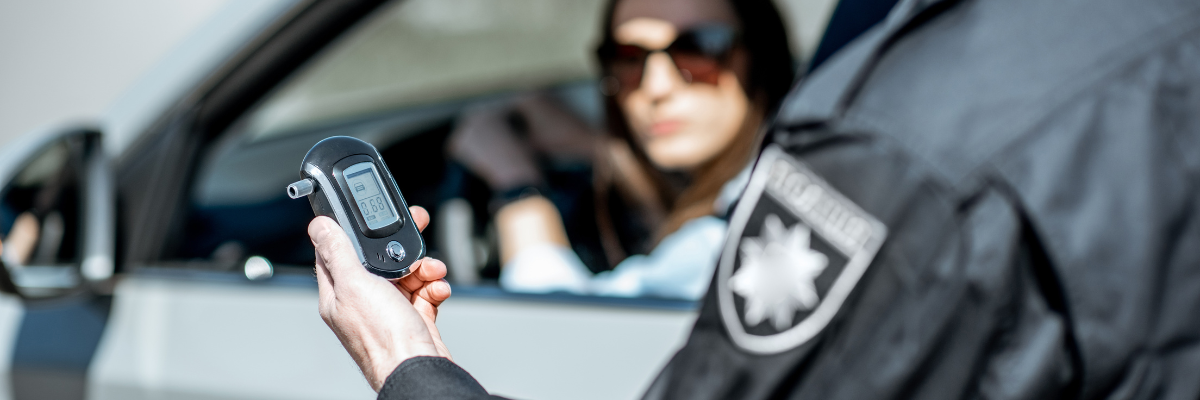Did You Blow? The Consequences of Refusing a Breathalyzer Test in North Carolina
Picture this: It’s Friday evening, and you’re driving home after having a beer with friends at your favorite local brewery. As you’re nearing your residence, red and blue lights flash behind you and a patrol car beckons you to pull over. You comply. The approaching officer suspects you of a DWI and asks you to submit a breathalyzer test. You, believing there’s no cause for concern, state your rights and refuse. What happens next?
In North Carolina, driving while under the influence can lead to serious consequences. To summarize the law, a driver is arrested for a DWI (and their license is revoked for 30 days) if their blood alcohol content is .08% or higher. For commercial drivers, the threshold is 0.04%, and drivers who are less than twenty-one years old can have a blood alcohol maximum of 0.01%. If you submit to the breathalyzer exam, you have the right to contact an attorney and have a witness present during the testing procedure – as long as it does not delay the testing for more than thirty minutes. While it may be enticing to decline the test, refusal can lead to additional charges and complexities.
First, it’s important to note there are two forms of the breathalyzer test – one of which can be refused without legal consequences:
- Preliminary Breath Test (PBT): This is a roadside test conducted by the on-site police officer. You have a right to decline this test without facing repercussions.
- Chemical Analysis IE Breathalyzer: This test is conducted at the station if an individual is arrested on suspicion of a DWI. Refusing this test results in additional charges and long-term license suspensions.
An important caveat of North Carolina DWI laws is that all drivers fall under an “implied consent” clause when they receive their state ID. This law states that, by virtue of owning a NC license, all drivers automatically agree to take the chemical analysis breathalyzer test. Should they refuse the test, they are charged with an “implied consent offense,” and their license is revoked for one year.
Aside from the automatic charges and license suspension, refusing the test creates complications for your case and defense. For instance, an individual may still be arrested for drunk driving based on other forms of physical evidence, such as appearing to be inebriated or swerving their vehicle. Furthermore, declining the breath test hinders your ability to negotiate reduced charges or plea bargains. A judge may view the refusal of a breath test as evidence that the individual was aware they were under the influence and would receive a negative result. Because of the many complexities of the law, we recommend hiring an expert defense attorney (like the skilled team at Gross Law Group) to guide you through your rights and options.
FACING DWI CHARGES? CALL THE GROSS LAW GROUP TODAY
A DWI charge and breathalyzer test refusal can lead to serious legal consequences in North Carolina. It’s crucial to call a criminal defense lawyer in Wilmington who can ensure your rights are protected. Choose The Gross Law Group led by Attorney David K. Gross for expert criminal defense. Protect your future with personalized attention and aggressive representation. Trust a former police officer and experienced legal advocate to defend your rights. Contact us now. 910.666.0693





